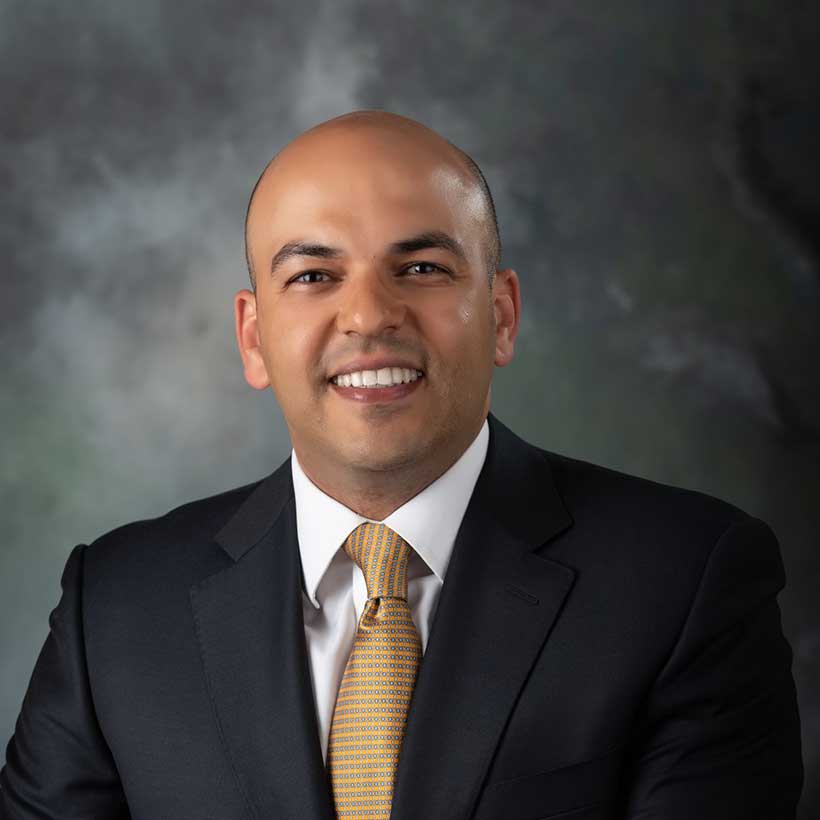Making a Case for Banking Local
How law firms benefit from a robust banking relationship
Specialization. Size. Culture. Law firms can differ in a variety of ways. However, all law firms – whether a sole practitioner, litigation boutique or national full-service practice – share a certain commonality: A commitment to serving their clients as effectively and efficiently as possible. This commitment goes beyond providing top-notch legal advice – for most lawyers, that’s a given. To truly serve their clients properly, firms must extend their dedication to excellence by ensuring they have the right service providers in place to help them deliver the outcomes their clients expect. Having a banking relationship they can count on is critical; firms must find a financial institution that has a proven track record of accurately executing high value transactions specifically for legal professionals. And confirming that experience by asking the right questions is the best place to start.
A considered decision
At first blush, selecting the right bank for your firm may seem like a straightforward task. However, there are several things to consider when making your choice. The bank must, of course, offer all of the services that your firm – and its clients – need, including treasury management products and services. In particular, firms require IOLTAs for short-term deposits such as a client retainer, a deposit on a real estate matter or funds related to a particular transaction, as well as escrow accounts for parking funds until the terms of a transaction, such as a merger or acquisition, are completed. But more than simply offering these necessary products, the right bank should feel – and act – like an extension of your firm, focused on serving the interests of your business, your clients and even firm members. And this is what you should be thinking about if you’re looking to establish a new banking relationship or expand one that already exists. In short, you should be ensuring the bank has the experience, expertise and customer focus that will help your firm succeed. For instance, when a Boston-based, mid-sized firm with offices around New England was looking for a new financial institution, they opted to develop a relationship with a local bank, one they could “reach out and touch.” In addition to a comprehensive package of deposit, credit and cash management services, the firm benefits from being able to deal with bankers that they know, who are interested in fostering a long-term relationship and who consistently execute accurately. For a larger, well-known firm, a local bank is the right choice for their escrow accounts. The firm knows the bank’s relationship managers and trusts them to handle the accounts related to their M&A transactions. Plus, the local bank’s escrow offerings are more economical than those available through larger financial institutions, and the firm – and their clients – appreciate those savings. A solid banking relationship can also be invaluable to firms for their internal operations. For instance, the firm may face liquidity challenges if a number of partners decide to retire at the same time. If necessary, the firm can turn to the bank for help financing the buyout. Similarly, a local bank could be a useful resource for new partners who require financial assistance when buying in to a firm – especially if they’re juggling other demands on their liquidity, such as the purchase of a home. You may even be able to negotiate a better deal if you bundle managing the firm’s business with personal banking relationships for your partners and staff members.
Ask the right questions
When you’re looking for a new bank or assessing whether your existing banking relationship is truly meeting the needs of your firm and your clients, ask yourself if the financial institution you’re considering is:
- Accessible: Can you count on your banking representative to pick up the phone when you call? Is someone available to answer your questions and provide the service you require?
- Reliable: Will the bank execute your requested transactions, including collections and disbursements on behalf of clients, in a timely and accurate manner?
- Responsible: Does the bank have a suite of fraud prevention measures in place to protect you and your clients?
- Responsive: Does the bank understand your firm’s requirements and how they might differ from those of their other customers? It’s critical for your bank to appreciate how you operate and your specific pain points. The right bank will treat your clients’ concerns as their concerns.
If your firm is looking for advice about establishing a local banking relationship, contact Robert P. Coletta or Jeffrey R. Sweet from our Commercial Lending team. Click on the photos below for full bio and contact information.
-
 Robert P. ColettaFirst Vice President Commercial LendingBrockton, MA
Robert P. ColettaFirst Vice President Commercial LendingBrockton, MA -
 Khaled A. KhalilVice President of Commercial LendingBoston, MA
Khaled A. KhalilVice President of Commercial LendingBoston, MA
.png)


